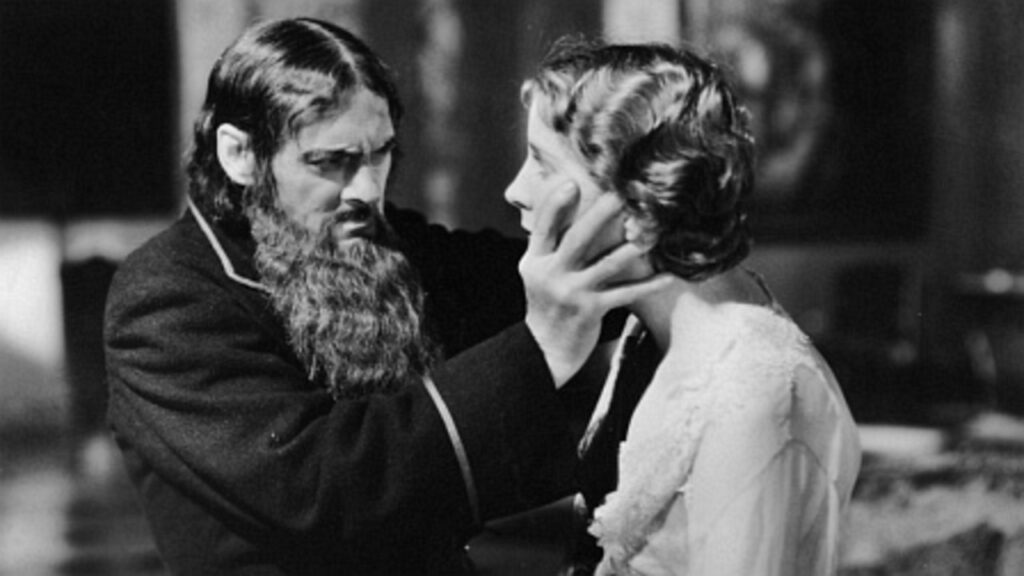
Rasputin & The Empress (1932) was something of a coup for MGM. It’s the only film to feature all three of the Barrymores; John, Ethel and Lionel. Each of them shines in this film that was one of the first Hollywood talkies to address the latter period of Tsarist Russia. The film, which is basically historically accurate, was the subject of a lawsuit on behalf of the exiled Prince Yusupov who is portrayed in the film by John Barrymore. MGM settled out of court, reaping the free publicity brought on by Yusupov’s lawsuit.
To helm this monumental epic MGM turned to its resident Polish director Richard Boleslawski who had made a handful of films in Russia prior to 1920 and who had witnessed Rasputin’s rise and fall in the press. Richard Boleslawski brings to the proceedings a sense of the grandeur of Nicolas II’s regime while always casting a critical eye on the Tsar and his cohort. The film may not be all that stylish but it is affective and convincing in a historical sense. MGM went so far as to incorporate newsreel footage into the film to lend the picture an even greater authenticity.
As Rasputin MGM cast Lionel Barrymore. He imbues the monk with a bit of the macabre, a bit of snake oil, and plenty of camp. Lionel Barrymore’s Rasputin is terrifying, intense and loud as thunder. Rasputin is a plotter, a manipulator and a back stabber. Unlike other film versions the Rasputin of Rasputin & The Empress is entirely evil and hardly ever bothers to make a gesture towards theology.
Ethel Barrymore plays Alexandra, the Tsarina. Ethel Barrymore’s performance lives entirely in her character’s maternal role, every worrying for the ailing Tsarevitch. She’s played as a willing victim of Rasputin’s schemes; willing only because she sees no other hope for her son’s survival. It’s a tender and heartbreaking performance full of sympathy and desperation.
Then there is John Barrymore as Yusupov, Rasputin’s assassin. For dramatic effect the film treats Yusupov as the sole executioner of Russia’s most infamous holy man. John Barrymore plays his part as a kind of iteration of the swashbuckler, full of derring do and panache. Each Barrymore brings to their part a heightened sense of drama that borders on camp, especially when they are together. But being that they are the three leads it all works. Rasputin & The Empress plays like theater documented on film.
In the 21st century Rasputin & The Empress seems to be all but forgotten. It’s had only DVD release and it was manufactured on demand. Val Lewton’s novelization of the film can be found in relatively good condition on ebay and etsy for about twenty dollars. Yet the historical figures depicted in the film continue to enthrall the public. I, for one, watched this movie regularly on a VHS tape from my local library as a child. Just as much as any old Hollywood picture Rasputin & The Empress deserves a major restoration.
